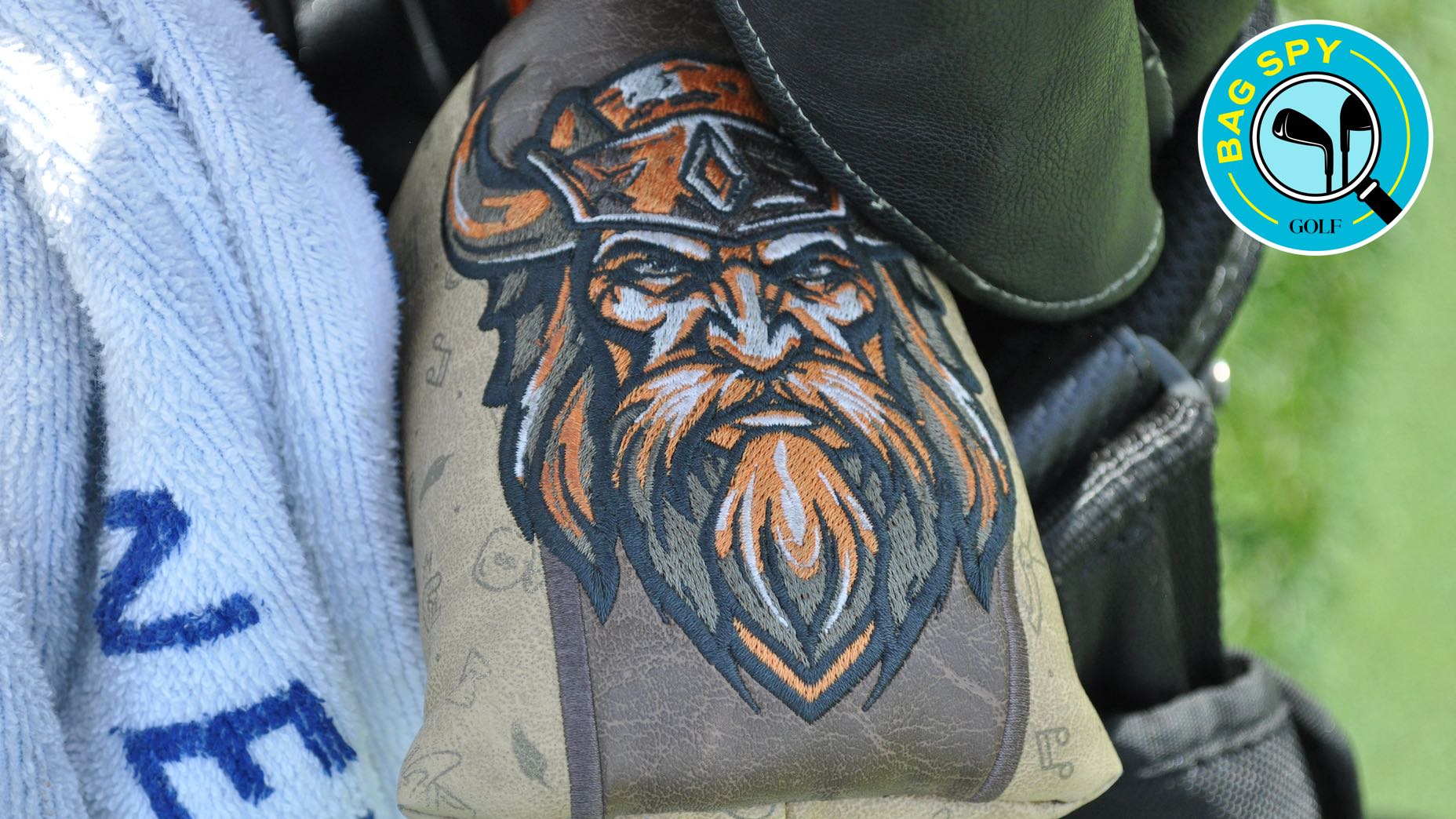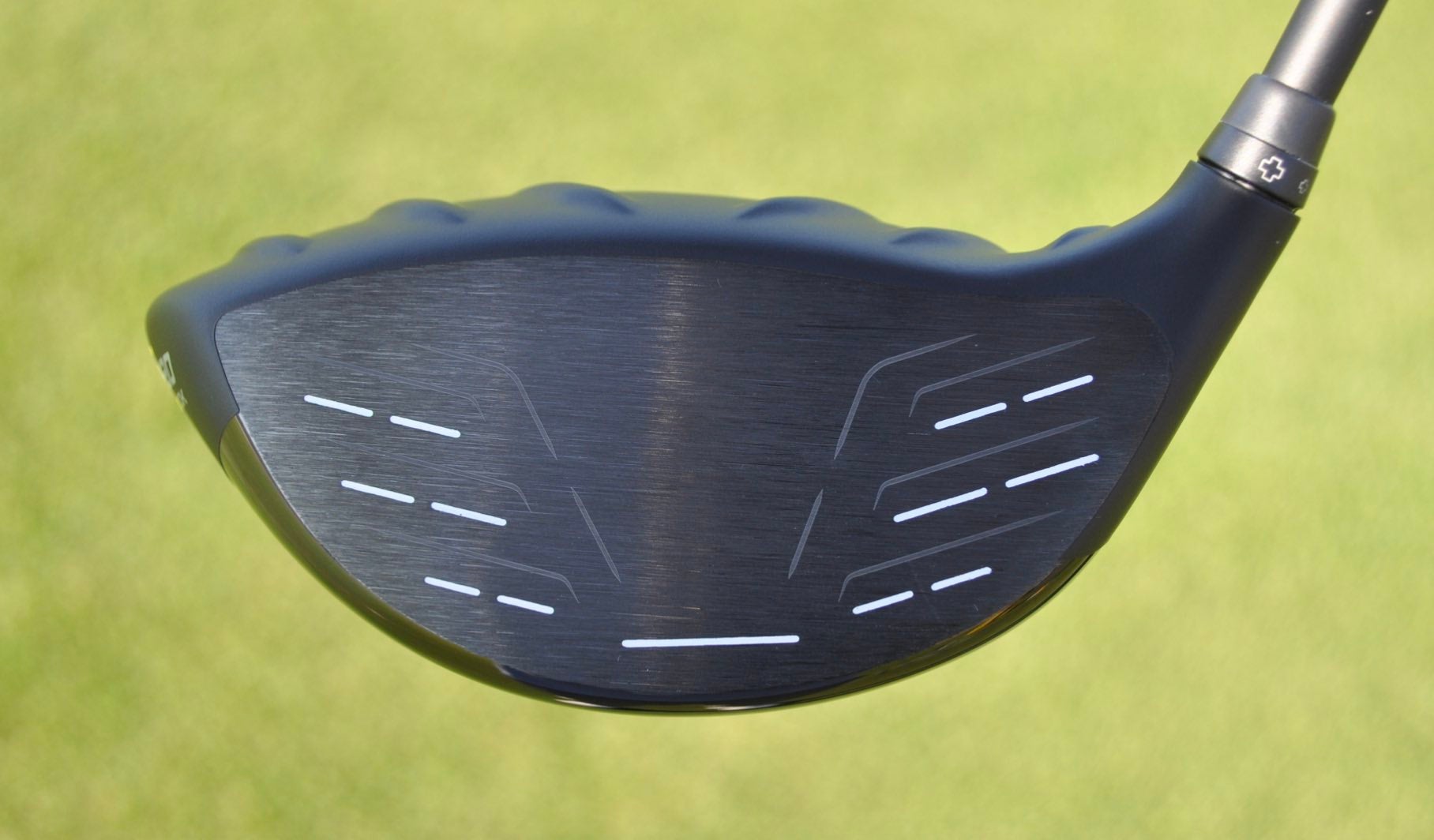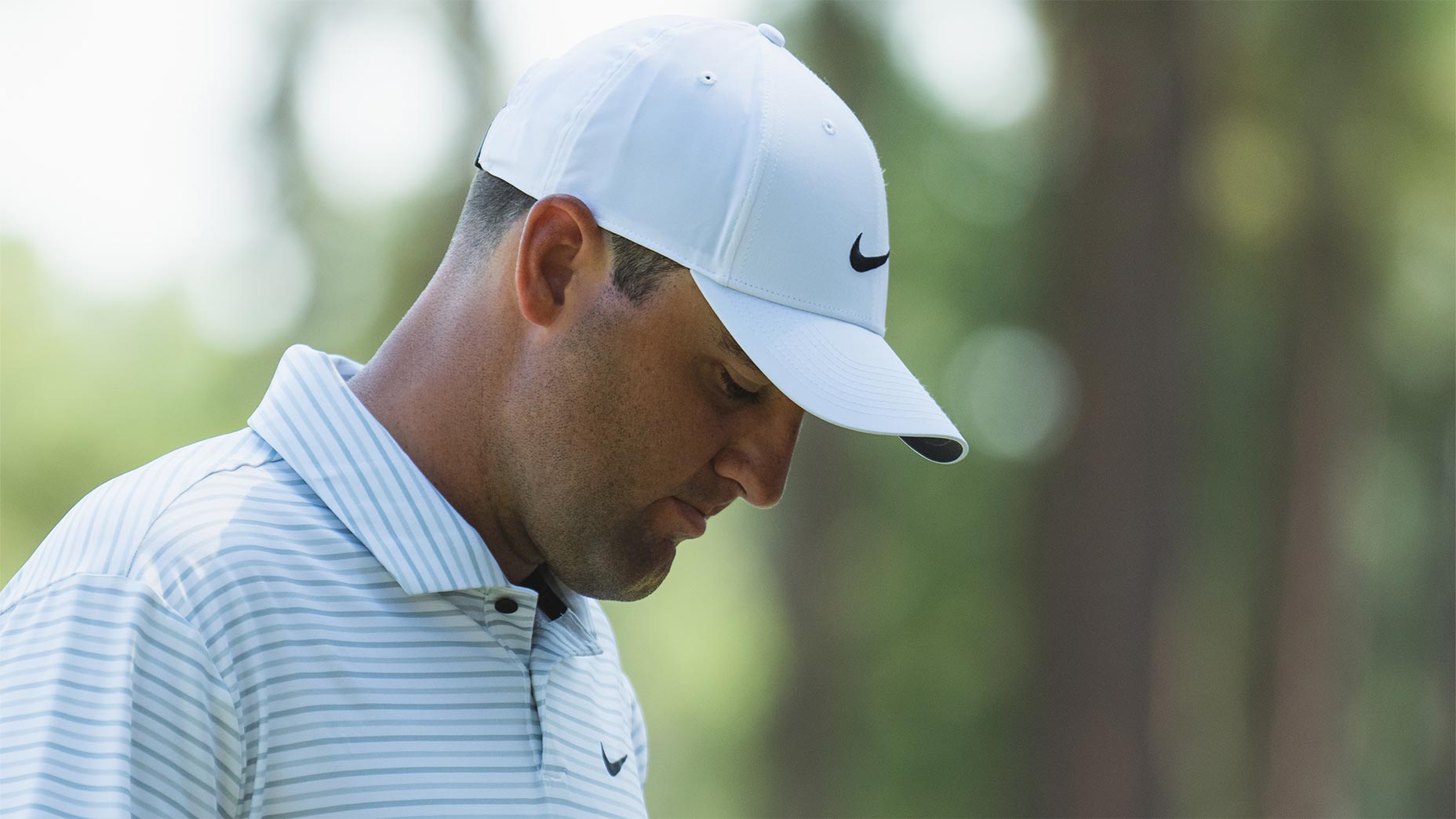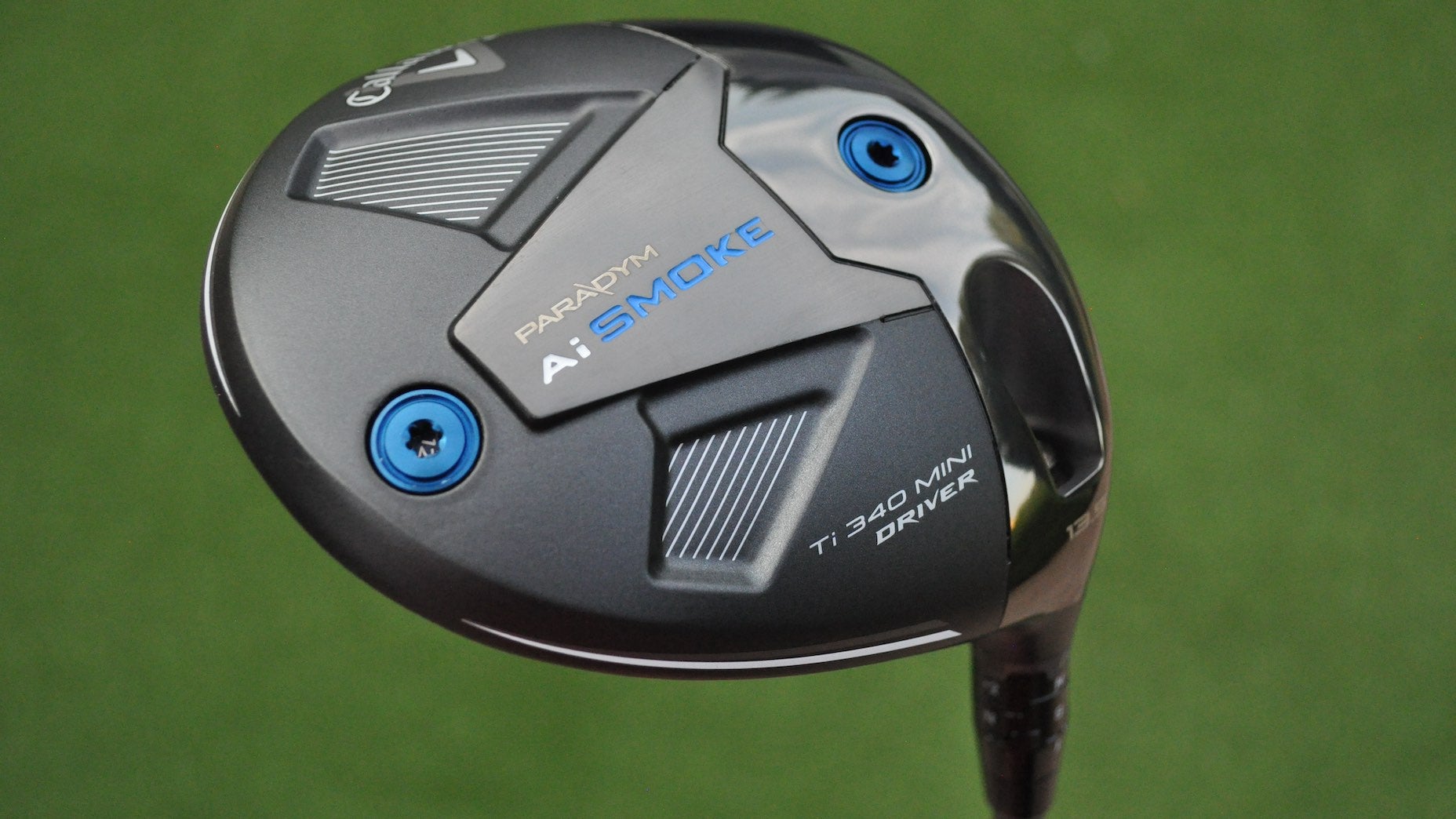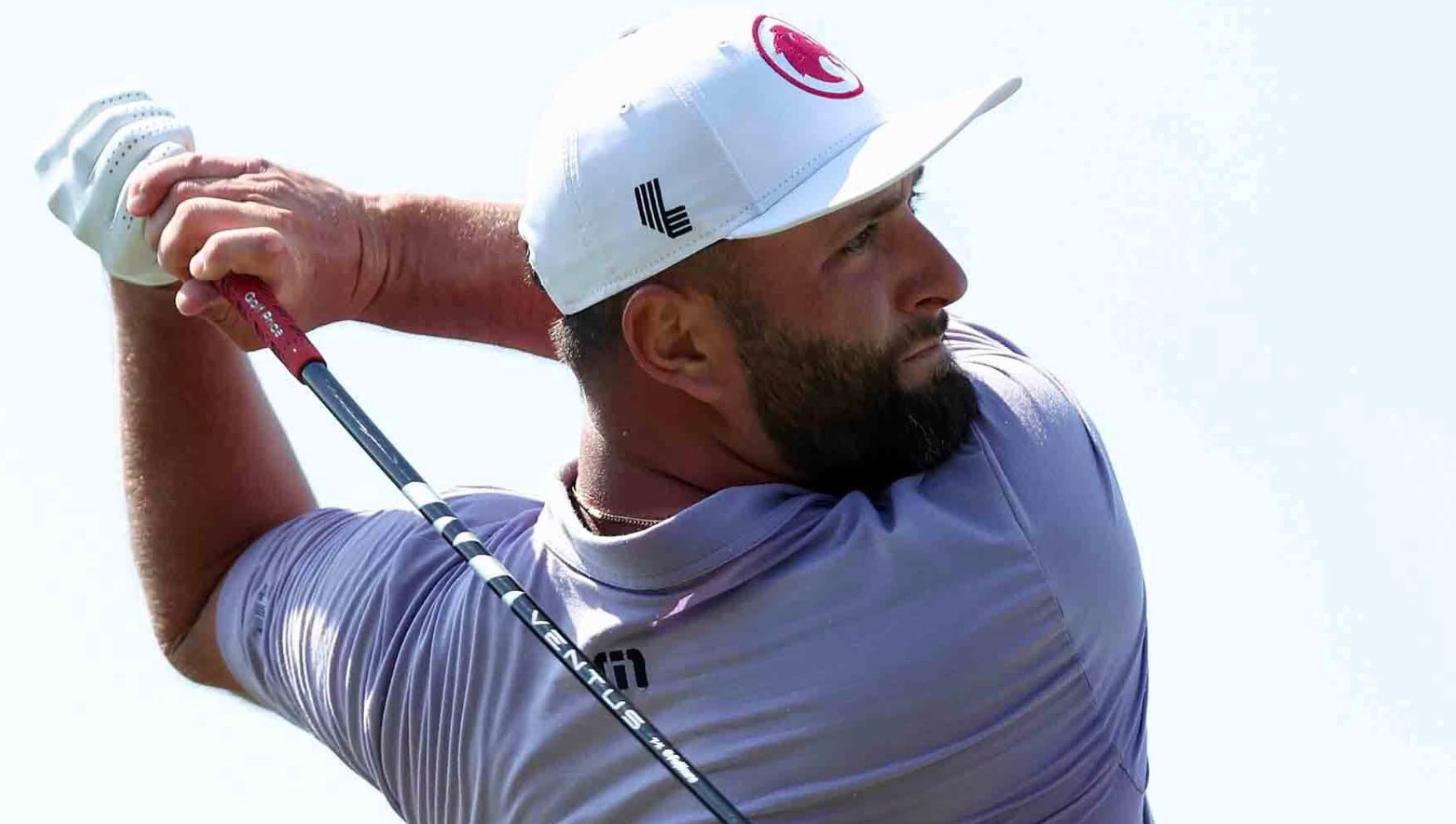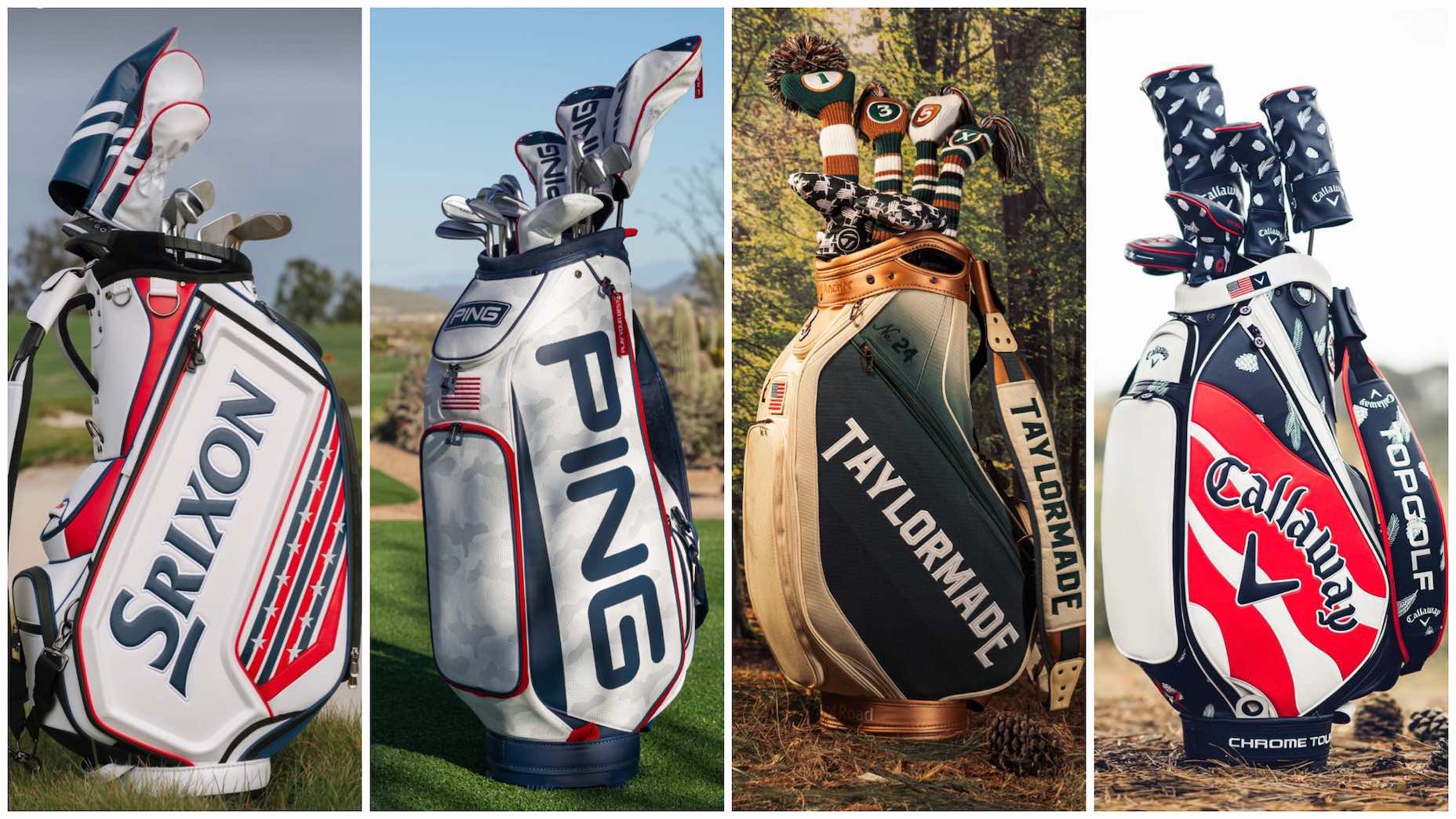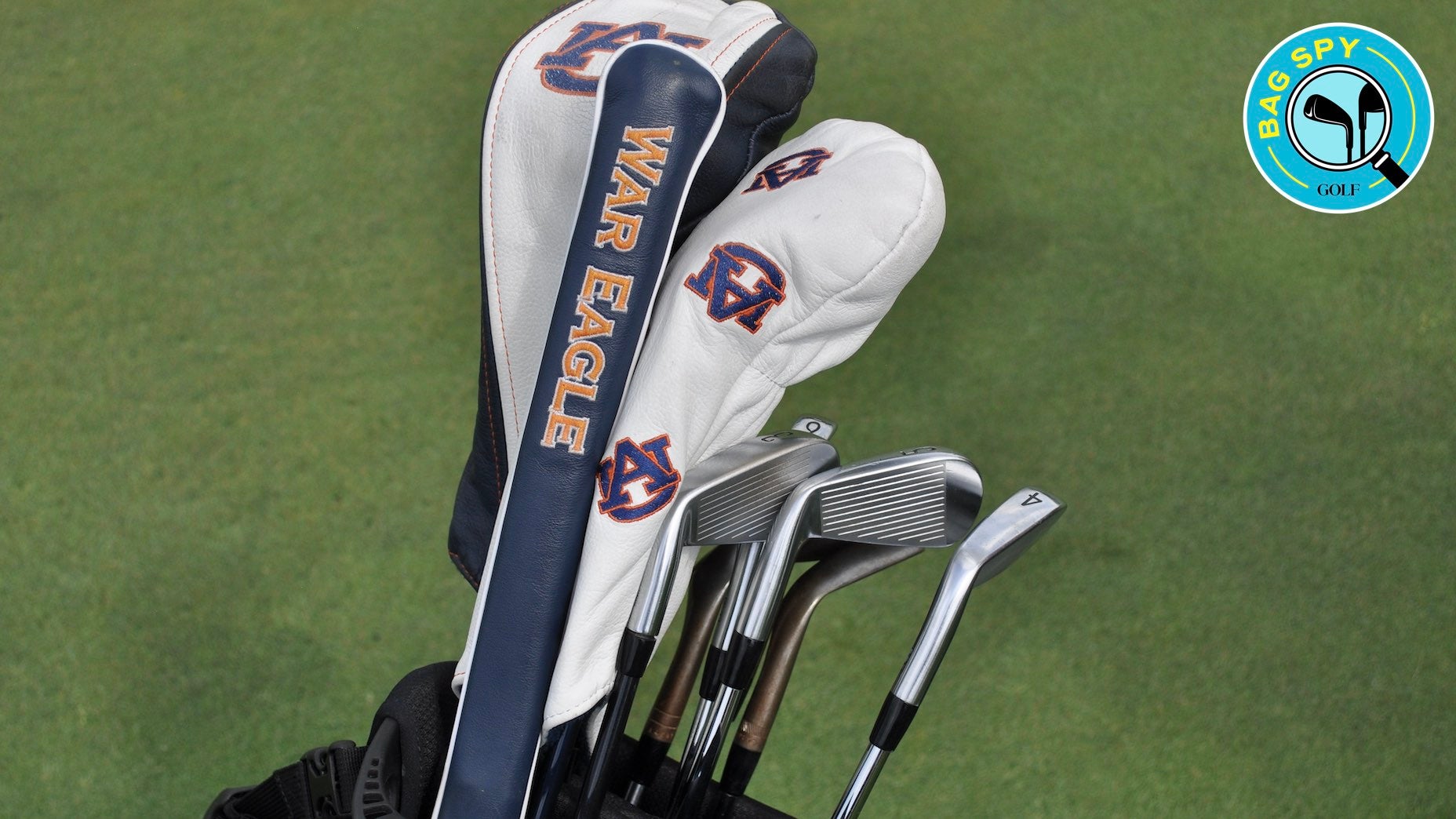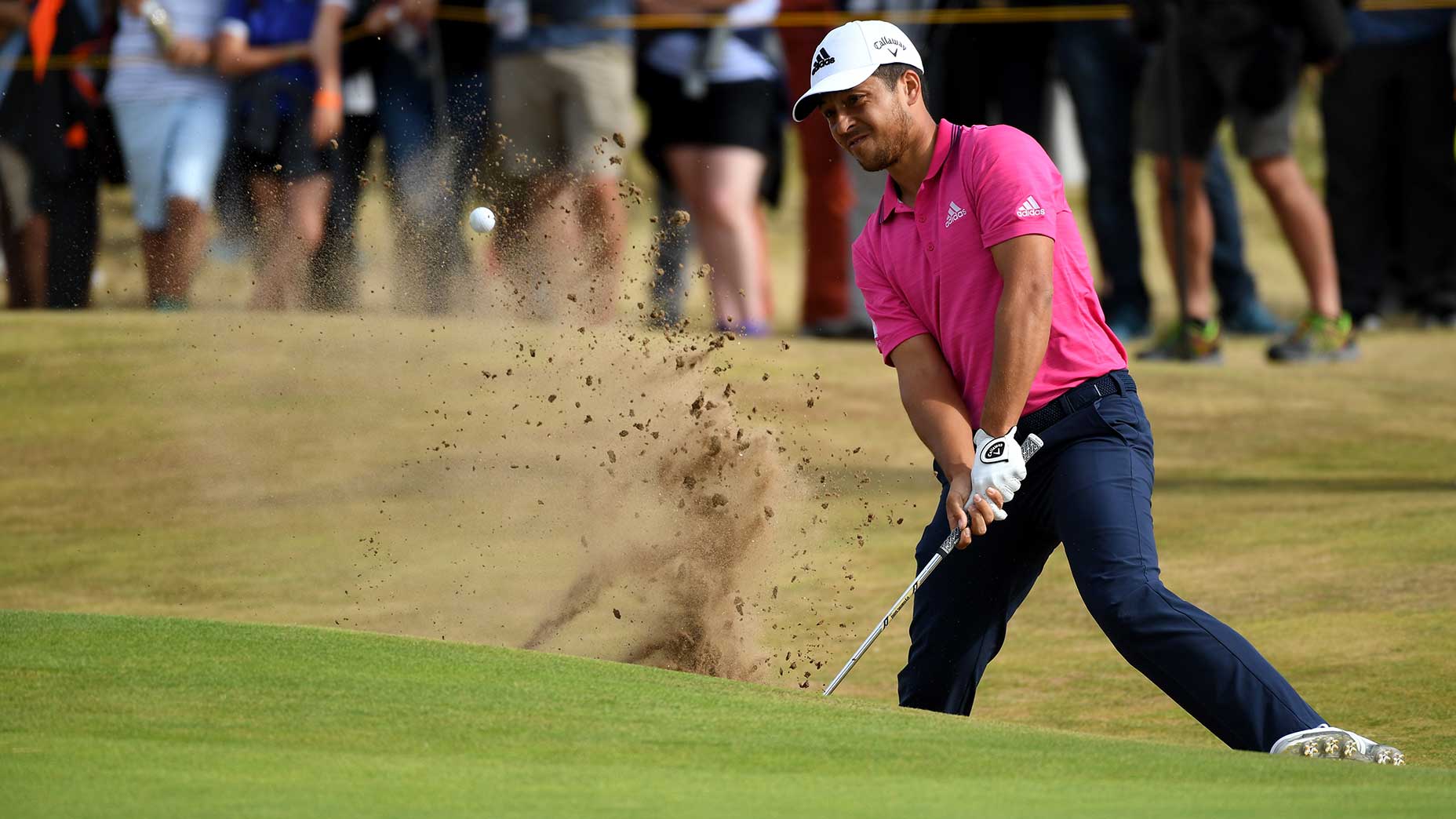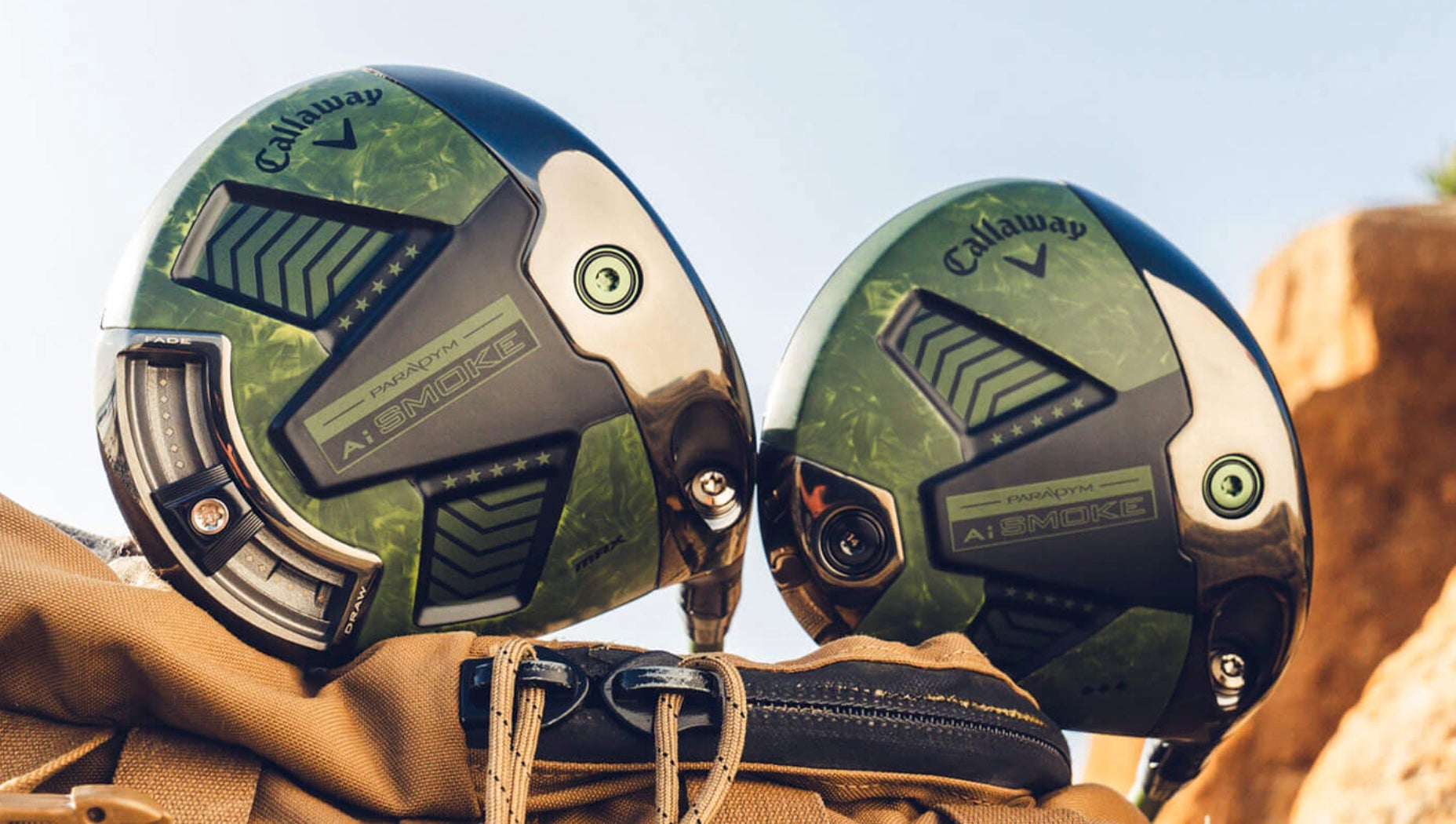7 cool equipment finds inside Xander Schauffele’s golf bag | BagSpy

Schauffele's Apex TCB irons have some of the weakest lofts on Tour.
Jonathan Wall/GOLF
The gear crew at GOLF.com spends a lot of time at Tour events snapping photographs of the tools used by the best players in the world. Posting club images online without context sometimes works, but it doesn’t help the weekend golfer understand the why behind a pro’s setup.
In this GOLF.com series, equipment editors Jonathan Wall and Ryan Barath answer those questions by highlighting interesting clubs in players’ bags, unique weighting, loft sleeve settings and more. Welcome to “Bay Spy.”
Weak weapons
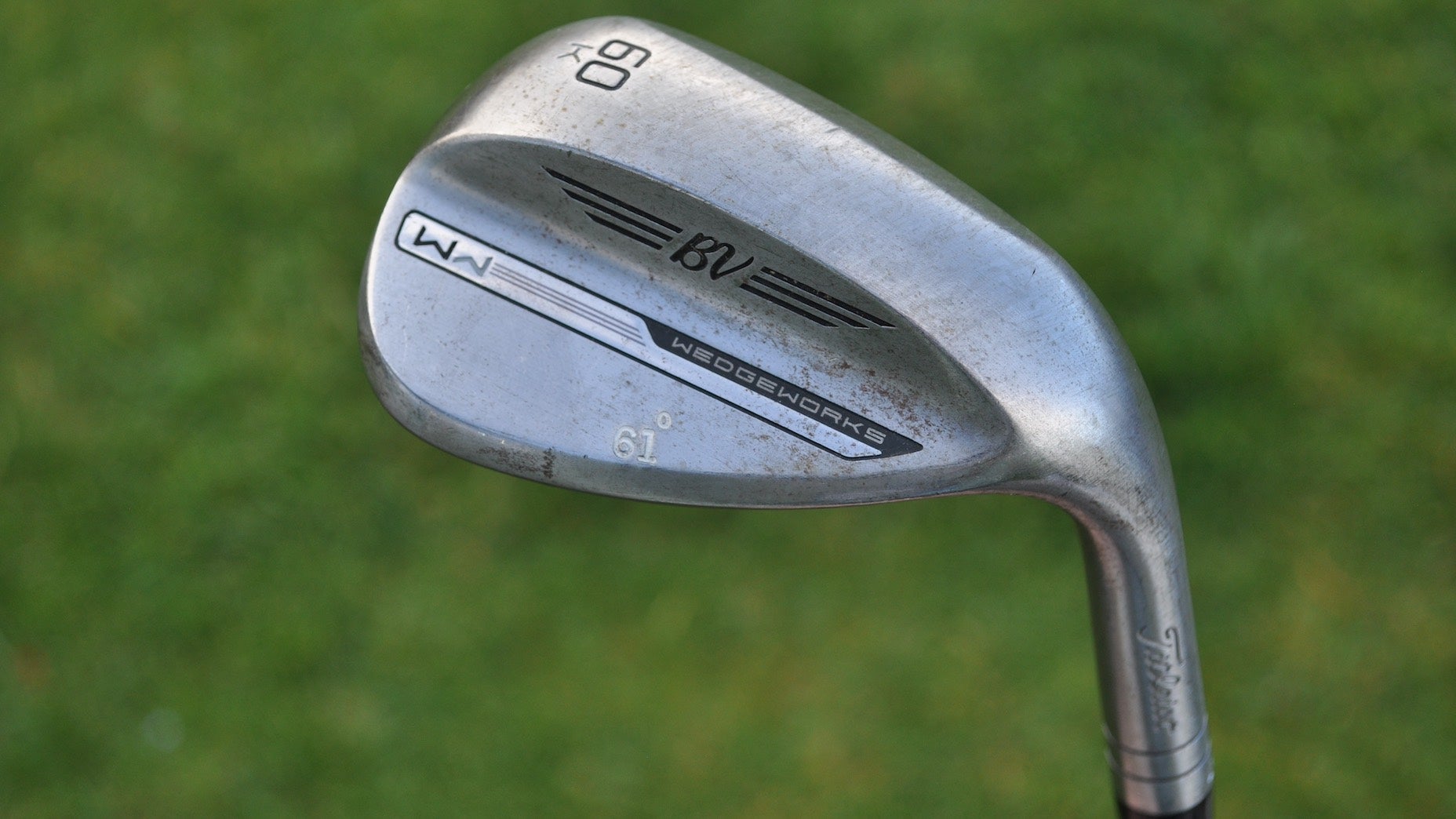
The numbers don’t lie. Going back to the 2021 season, Schauffele has increased his average clubhead speed from 119.8 mph to 123.1 mph this season, placing him in the top 10 on Tour. Speed is a nice-to-have, but it sometimes requires modifications to the equipment to hit specific yardages.
In Schauffele’s case, he’s weakened nearly every iron and wedge in the bag by one degree to keep carry yardages consistent across the board.
“He’s weaker on pretty much all the irons than pretty much anybody else,” said Callaway Tour rep Kellen Watson. “He’s a 47-degree pitching wedge, which is quite old-school. That extends up and down the set simply because of the speed he’s added.”
It’s the opposite of “loft jacking.” The only Tour pro who can claim a set of irons and wedges with weaker lofts is Tiger Woods, who still plays a 49-degree pitching wedge.
Constant reminder
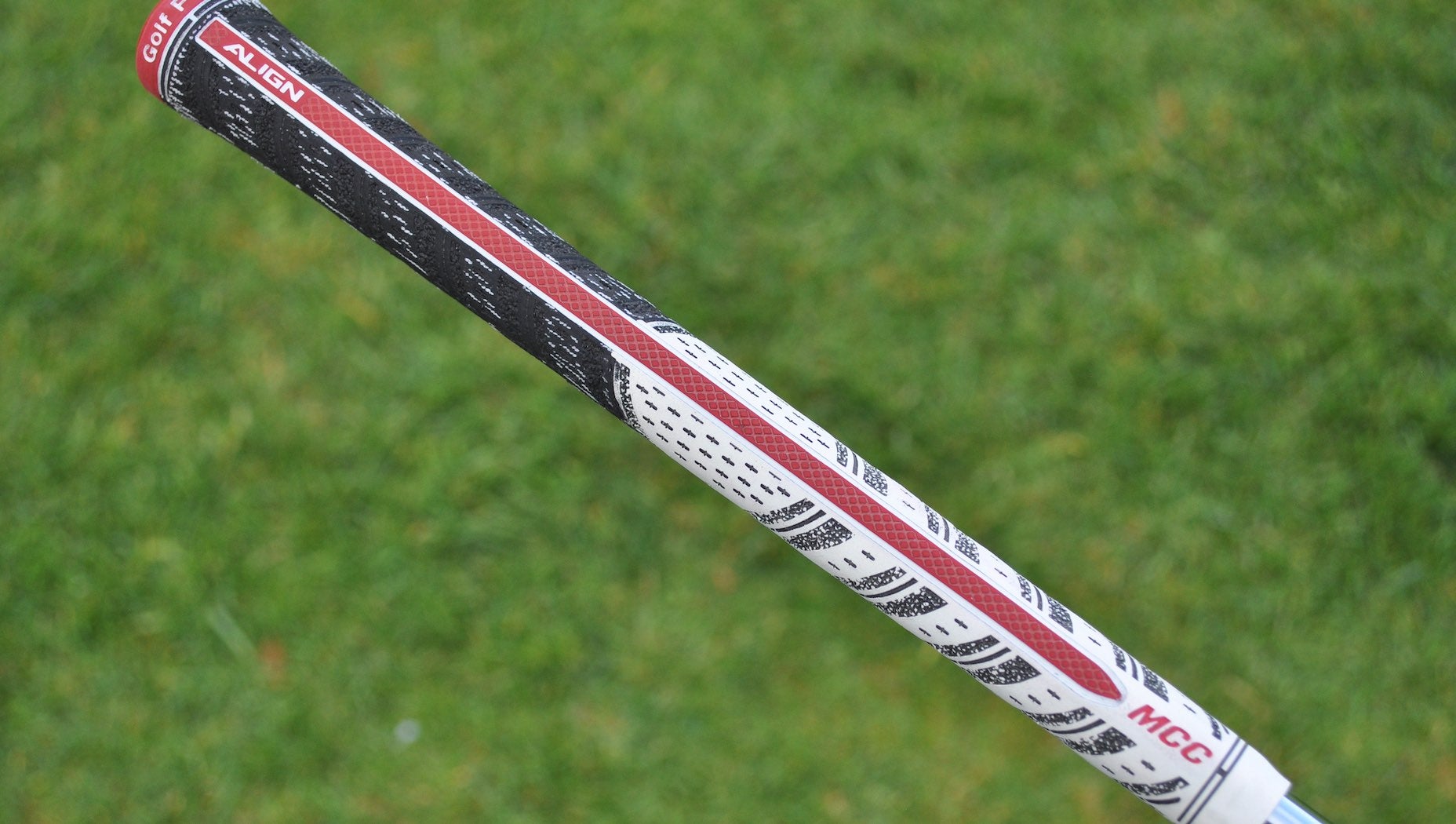
See the red line going down the back of Schauffele’s Golf Pride MultiCompound Align grips? It’s not there for show. For years, some tour players have added a “reminder” to the back side of the grip — a raised internal ridge running the length of the grip — to promote consistent hand placement.
Released in 2017, Golf Pride’s built-in Align is a micro-diamond texture added to the rubber that serves the same purpose. Schauffele is part of a growing group of pros who prefer the Align version to the old-school, internal raised reminder that has to be added by a club builder during the installation process.
I give it a 10
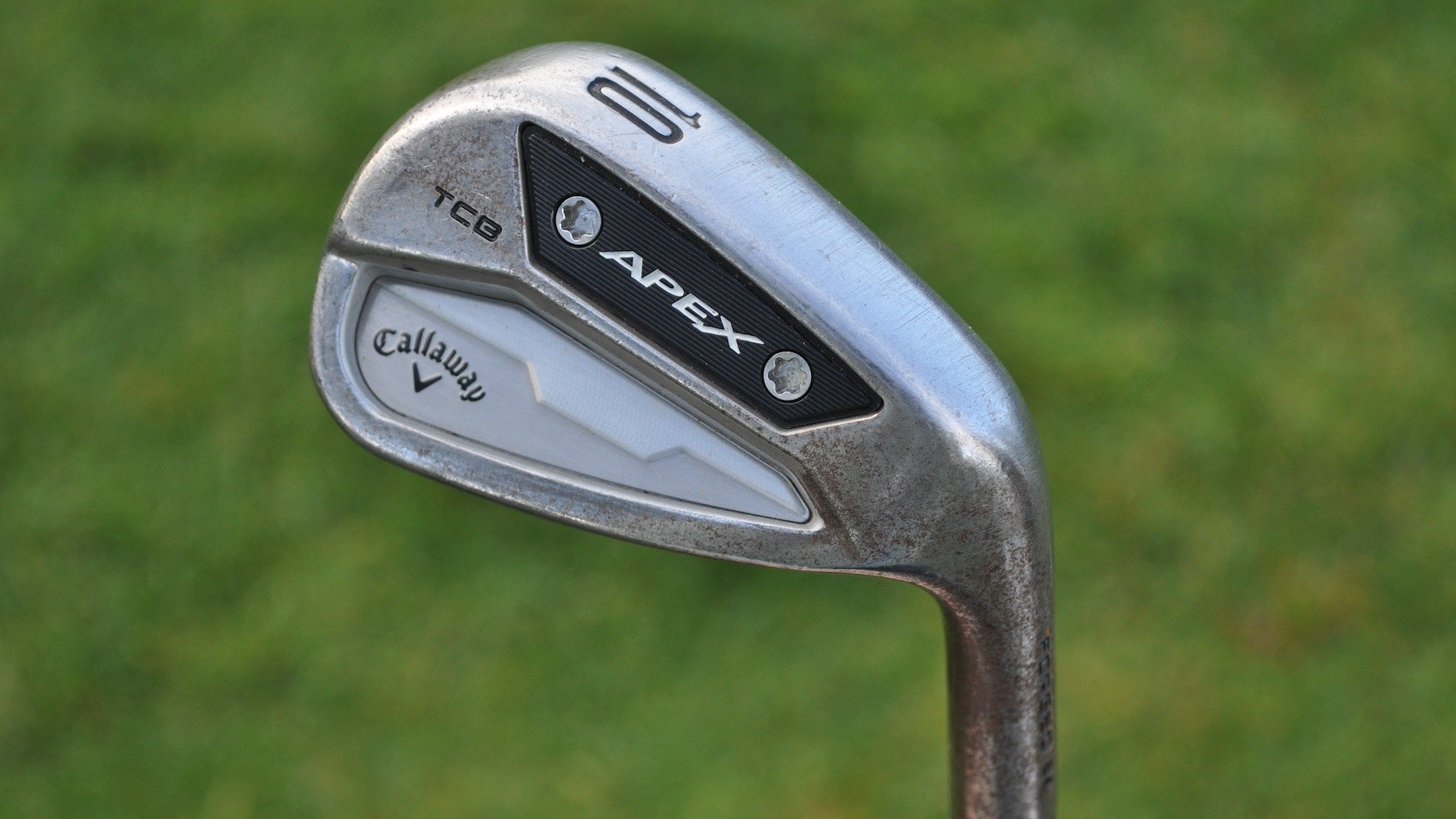
We’ll be the first to admit the 10-iron looks out of place in the bag. Callaway has embraced a naming that many Japanese brands currently use by replacing the common “PW” with a 10. The 10-iron tag has been reserved for sets with stronger lofts in the past, but Apex TCB is a better-player offering.
So what gives? According to Schauffele, there’s nothing special going on. “It’s just a pitching wedge,” he said. In other words, Callaway simply wanted to mix things up with TCB.
Schauffele isn’t the only pro on Tour with a 10-iron in the bag. Callaway staffer Nicolai Højgaard’s Apex MBs have a 10-iron instead of a pitching wedge as well. It’s the kind of minutiae only gear nerds can appreciate.
Custom visuals

Schauffele’s mallet is impossible to miss on the course due to the red paint on the head. It’s a color he’s come to embrace over the years, outside of a brief stint with the same putter in a silver finish. Visuals matter at the top level of professional golf, and Schauffele’s rarely seen a need to shake things up.
Go back a few years and you’ll find an Odyssey O-Works Red #7 CH in Schauffele’s bag. The head color matches up with the Odyssey Toulon Las Vegas Prototype he started using last year at the Arnold Palmer Invitational. So, too, does the black insert on the face. Or at least it looks like a black insert at first glance.
The insert found on the O-Works Red #7 CH was simply a White Hot painted black to tone down the contrast between the two colors. However, when Schauffele chose to go away from White Hot last to try a different feel with the diamond-milled groove pattern found on his current wand, Odyssey designers had to figure out a way to keep the visuals consistent sans insert.
Odyssey Ai-ONE Milled Seven T CH Putter
$449.99
View Product
Schauffele wanted to see a dark finish on the face that mimicked the black White Hot insert on his old wand, so Odyssey added black paint to a large section of the face. The only part that didn’t receive black paint was a small section at the top where it transitions from the crown to the face.
“Transitioning from the topline and figuring out where we wanted the red paint to stop was tricky,” Toulon said. “If you stop it at the edge of the topline, it can get chipped or look that way easier. So we took it over slightly to make sure it didn’t look choppy.”
Total package
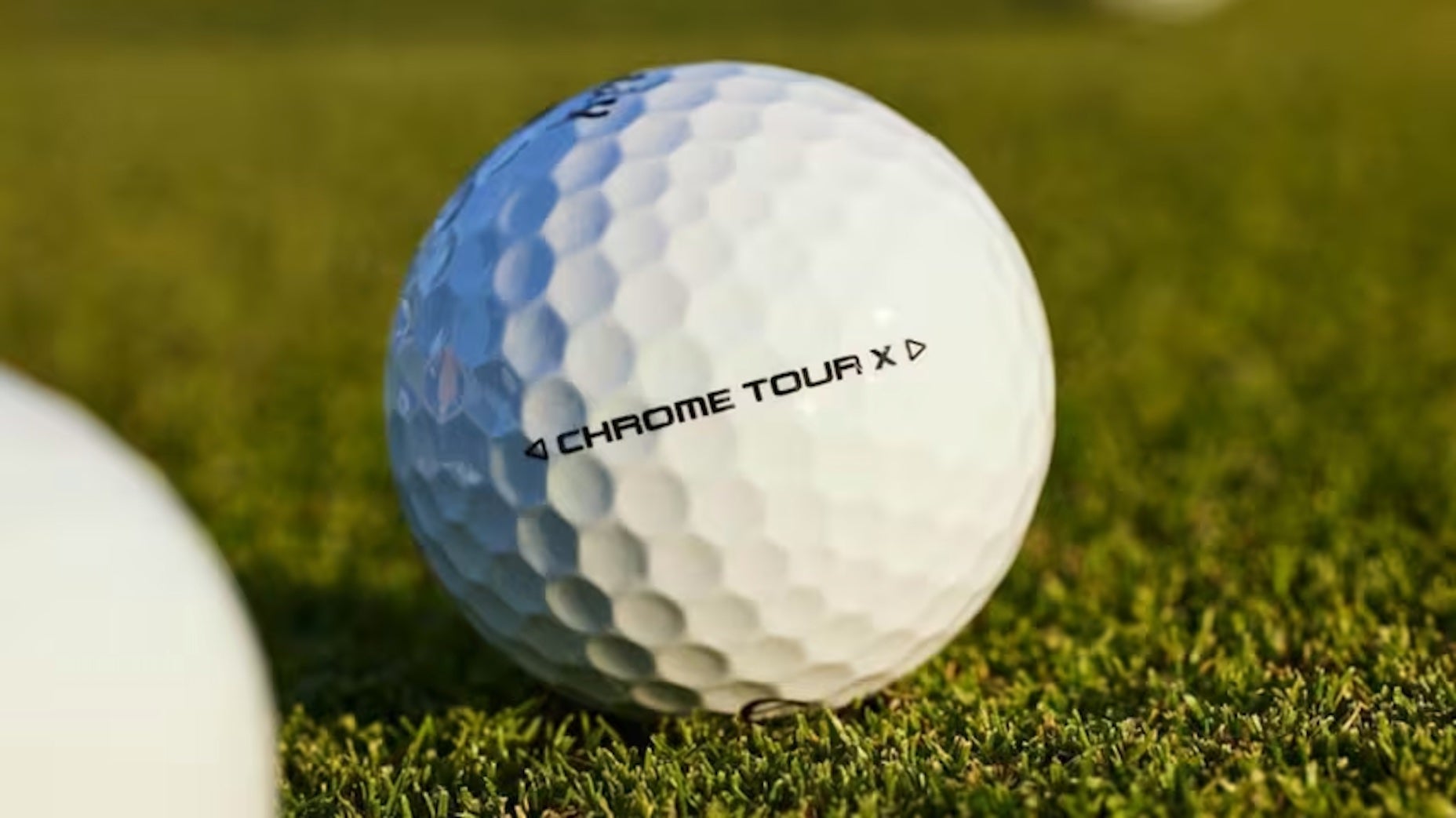
If Schauffele had his way, Callaway’s Chrome Tour ball would’ve been in the bag from the jump. Unfortunately, the USGA has to give the sign-off on prototypes before they ever find their way to Tour, so the recent major winner had to wait until January to green-light the new pellet. By the time he arrived at the Sentry Tournament of Champions, Chrome Tour was in the bag.
Schauffele hasn’t looked back. An increase in speed led him to target other areas of improvement during testing toward the end of last year. Two aspects that grabbed his attention were the improved spin and control around the green and stability in the air.
Callaway 2024 Chrome Tour X Triple Track Golf Balls
$54.99
View Product
“The [Tour reps] do a great job of dialing in the ball for us,” Schauffele said. “But you can’t make on-the-fly adjustments to how it’s performing in the air. If the ball is getting moved around in a crosswind or into the wind, you tend to make compensations, which is never a good thing. With this one, I saw it going through the wind with a consistent flight from the start.”
Having the ability to commit to the shot and not have to worry about wind direction or strength has made it easier for Schauffele to not worry about his equipment and commit to the shot. In almost all cases, simpler is better on the course.
Favorite stick
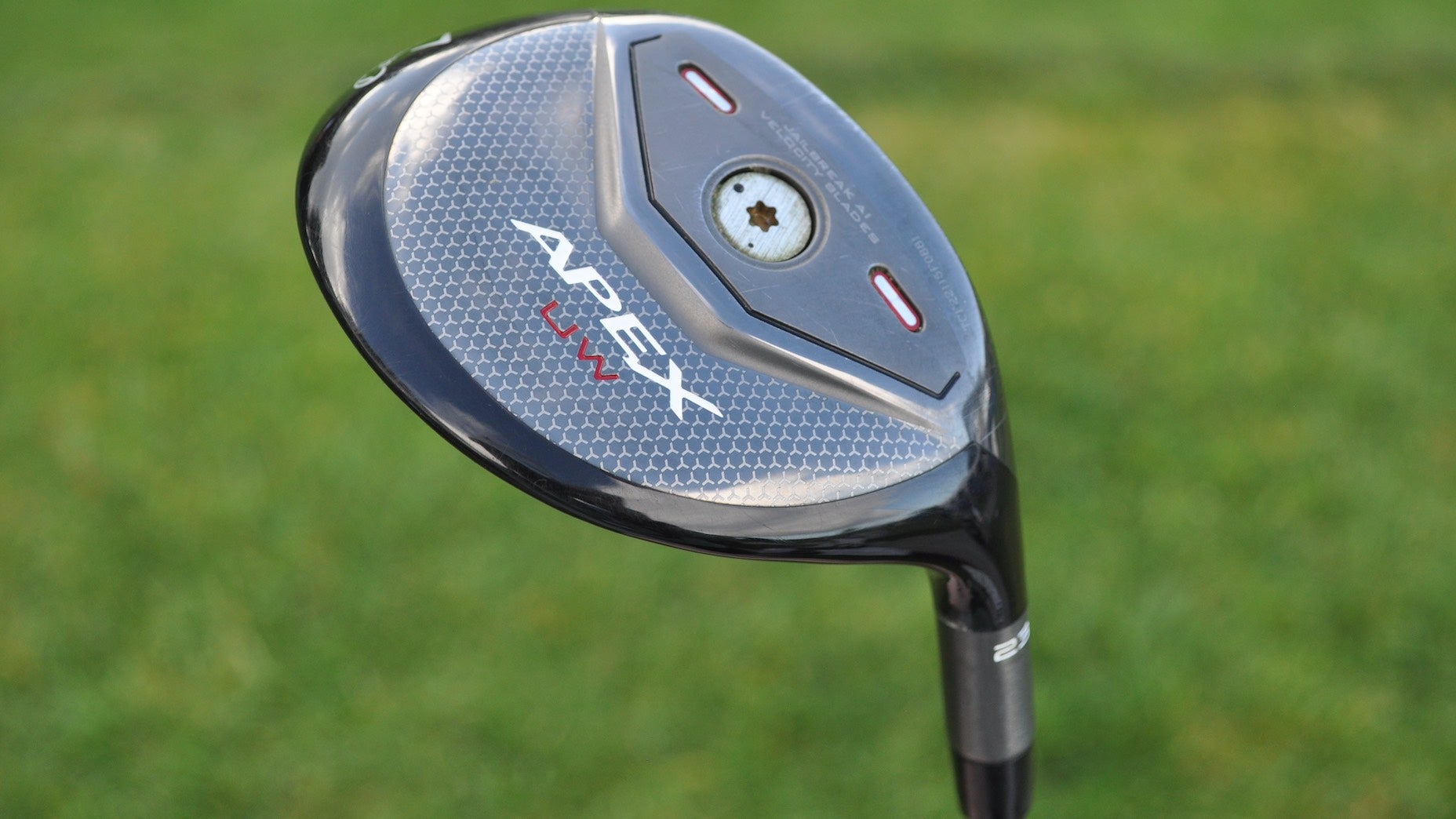
It should come as no surprise that the favorite club in Schauffele’s bag is also the oldest. Released in 2021, the Apex UW “utility wood” features strategically placed tungsten housed inside the head for a high launch and consistent spin characteristics with a reduced draw bias.
Due to Schauffele’s steeper angle of attack, he makes one important modification to the head, reducing the loft from 21 to 19 degrees. Going stronger generally leads to more distance, but in Schauffele’s situation, his steeper attack angle actually imparts more spin on the ball. Less loft is one way to combat the excess spin.
At 41.5 inches, Schauffele’s UW is slightly shorter than most of today’s 5-woods. The benefit of going shorter, in this case, is that it allows him to add another “control” club to the bag.
High ball hitter

The HL (high-lofted) offering in most lineups is made for the golfer who needs help lifting the ball into the air. Pros have started to embrace them as well in recent years, especially those with extra speed in the tank. Years ago, Dustin Johnson stopped using a traditional 15-degree 3-wood because it went too far. The club was eventually replaced by an HL version that flew higher and fit the carry gap between his driver and 7-wood.
Similar to the decision to weaken the loft on his irons — due to an uptick in club speed — Schauffele wound up finding a 16.5-degree Paradym Ai Smoke Triple Diamond HL to be a better fit. The forward CG on Triple Diamond keeps spin numbers in check while the extra 1.5 degrees of loft ensures Schauffele isn’t too close to his driver in the carry department.
Want to overhaul your bag for 2024? Find a fitting location near you at True Spec Golf.




